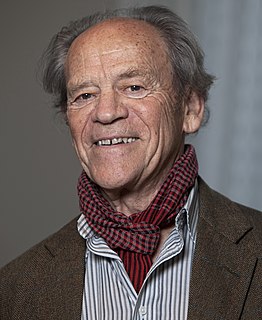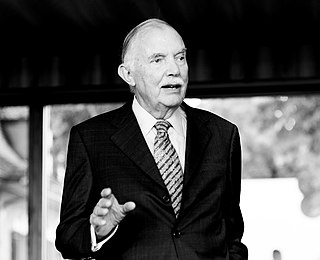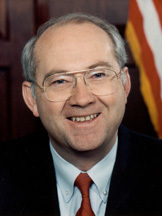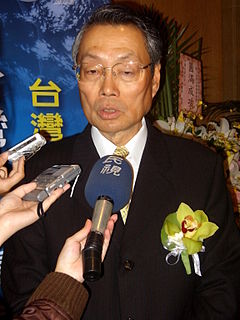A Quote by John C. Bogle
There is no country like the United States, with its diversified industrial base, technology leadership, innovation and strong pressure to build companies to make them grow.
Related Quotes
It takes a long time for a country to build a strong base in science, but only a short time to destroy it. Germany was a sad example. It was a world leader in the sciences for more than a century, until its science base was demolished during the Nazi era, and the country ceded its position to the United States.
China is a great manufacturing center, but it's actually mostly an assembly plant. So it assembles parts and components, high technology that comes from the surrounding industrial - more advanced industrial centers - Japan, Taiwan, South Korea, Singapore, the United States, Europe - and it basically assembles them.
I ask particularly that those of you who are now in school will prepare yourselves to bear the burden of leadership over the next 40 years here in the United States, and make sure that the United States - which I believe almost alone has maintained watch and ward for freedom - that the United States meet its responsibility. That is a wonderful challenge for us as a people.
Now, many Americans fear that China might grow too strong ... I'm more worried that America might be getting too weak. It's not bad for the United States if other nations have a strong economy. One fewer hungry-mouthed country wanting us to take care of it and its people is great news. If they have money, maybe they will buy the things we innovate and make.
Because I had visited Silicon Valley, I recognized the microprocessor was going to lead the second industrial revolution. We Chinese could not miss that opportunity again - we missed the first industrial revolution already. We put our effort into trying to bring this new technology from the United States to Taiwan. That was the begining of Acer.
Generally, the technology that enables disruption is developed in the companies that are the practitioners of the original technology. That's where the understanding of the technology first comes together. They usually can't commercialize the technology because they have to couple it with the business model innovation, and because they tend to try to take all of their technologies to market through their original business model, somebody else just picks up the technology and changes the world through the business model innovation.
In the Islamic world, the U.S. is seen in two quite different ways. One view recognizes what an extraordinary country the U.S. is. Every Arab or Muslim that I know is tremendously interested in the United States. Many of them send their children here for education. Many of them come here for vacations. They do business here or get their training here. The other view is of the official United States, the United States of armies and interventions.


































